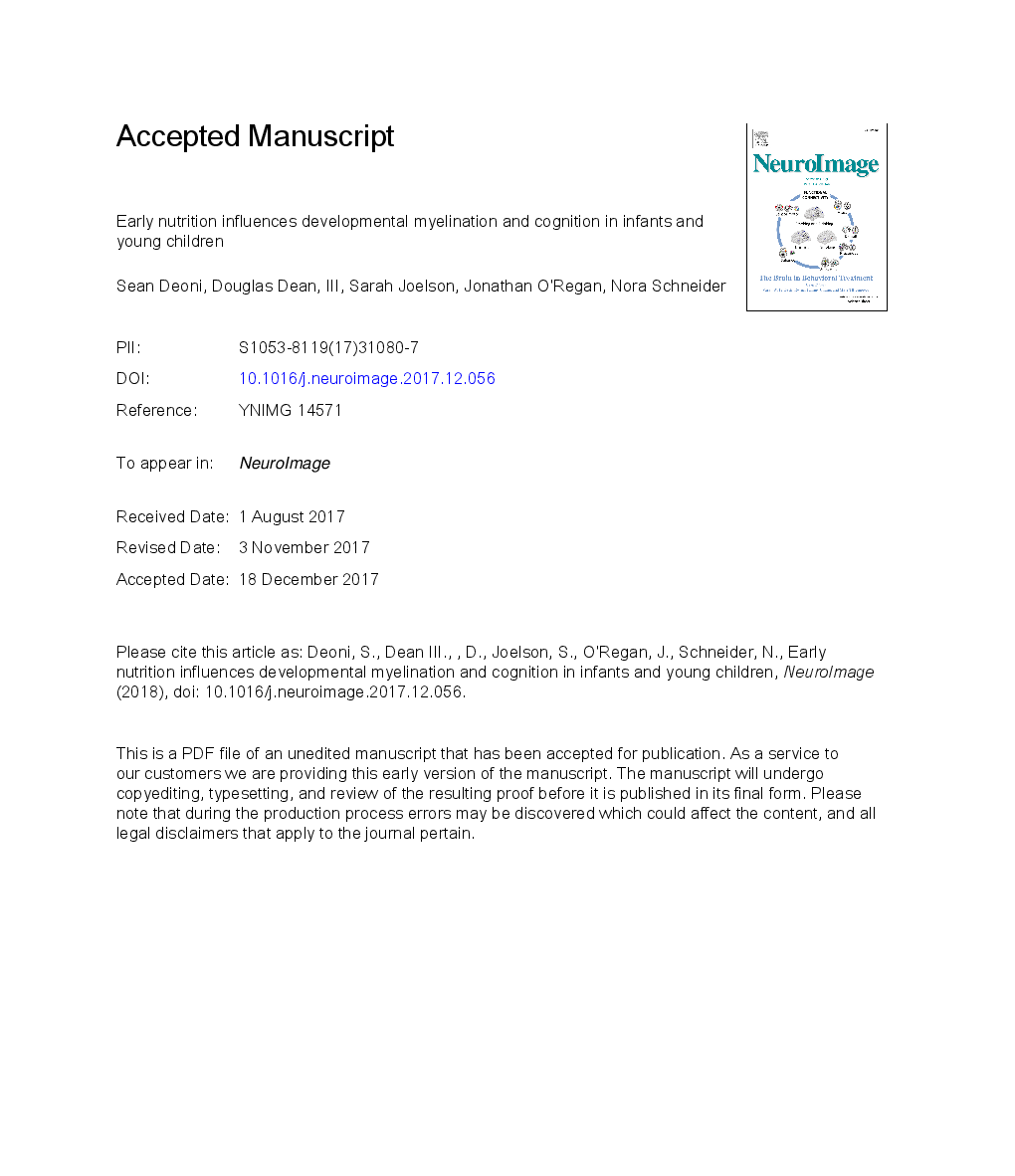ترجمه فارسی عنوان مقاله
تغذیه زودرس در نوزادان و کودکان خردسال تاثیر میگذارند
عنوان انگلیسی
Early nutrition influences developmental myelination and cognition in infants and young children
| کد مقاله | سال انتشار | تعداد صفحات مقاله انگلیسی |
|---|---|---|
| 156975 | 2017 | 53 صفحه PDF |
منبع

Publisher : Elsevier - Science Direct (الزویر - ساینس دایرکت)
Journal : NeuroImage, Available online 20 December 2017
ترجمه چکیده
در طول توسعه عصبی در اوایل، میلینینسیون، پایه ای برای اتصال به مغز فراهم می کند و از ظهور عملکرد شناختی و رفتاری حمایت می کند. تغذیه زودرس یک عامل مهم و قابل تغییر است که می تواند مولکولی و به تبع آن پیامدهای شناختی شکل بگیرد. تفاوت ترکیب غذای بین پستان و شیر فرمول بدن می تواند به توضیح تفاوت های عملکردی و شناختی که اغلب بین کودکان تغذیه شده به تنهایی پستان در مقابل فرمول مشاهده می شود، کمک کند. با این حال، مطالعات شناختی و مغز در گذشته در مقایسه با تغذیه با شیر مادر و شیر مادر اغلب: مقطعی؛ انجام شده در کودکان بزرگتر و نوجوانان با تکیه بر احضار والدین تغذیه نوزادان؛ و به طور کلی بچه های تغذیه شده با فرمول را به عنوان یک گروه واحد با وجود تغییرات بین ترکیبات فرمول، درمان می کنند. در اینجا برخی از این ضعف را با بررسی مسیرهای طولی مغز و رشد عاطفی در کودکان که به طور انحصاری در شیر مادر تغذیه شده اند در مقایسه با فرمول تغذیه حداقل 3 ماهه. ما بیشتر در مورد توسعه کودکان که ترکیبات فرمول های مختلف را دریافت کرده اند، بررسی می کنیم. نتایج نشان داد که کلیه میلینین را در کودکان شیرده افزایش می دهد و با افزایش توانایی های شناختی عمومی، کلامی و غیر کلامی نسبت به کودکان که به طور انحصاری تغذیه شده اند، بهبود می یابد. این تفاوت ها حاکی از آن است که در دوران کودکی حتی با گروه هایی که به لحاظ عوامل اجتماعی- اقتصادی و جمعیت شناختی همبسته هستند، همچنان ادامه دارد. ما همچنین اختلافات قابل توجهی در زمینه رشد و نمو بستگی به فرمول ترکیب شده دریافت می کنیم و به ویژه اینکه اسید های چرب طولانی مدت، آهن، کولین، اسفنگی مینال و اسید فولیک به طور قابل توجهی با مسیرهای اولیه میلینینگ ارتباط دارند. این نتایج به توافق برسند که تغذیه طولانی و منحصر به فرد شیردهی نقش مهمی در پیشرفت عصب ابتدایی و پیامدهای شناختی دوران کودکی داشته باشد.

